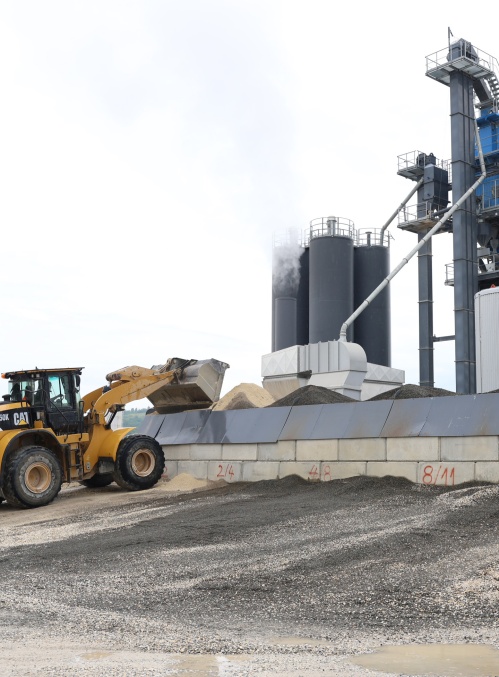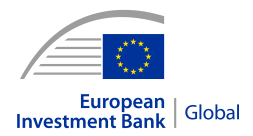
REEP/Ecoloans: Investing in Sustainable Business: A Profitable Venture
The Ecoloans programme has proven to be a game-changer for the CEMPROM concrete production company, leading to significant savings and the creation of new jobs.
This innovative initiative, funded by the German Development Bank (KfW) under the EU’s Regional Energy Efficiency Programme (REEP), is providing vital support to small and medium-sized enterprises (SMEs) to overcome key obstacles, including limited access to long-term financing and a lack of awareness about the benefits of sustainable business practices.
Under the Ecoloans programme, the German government, through the KfW, has injected a substantial €120 million into Serbian commercial banks.
The aim? To modernise and "green" the Serbian economy by enabling SMEs to invest in energy-efficient measures that will not only reduce consumption but also lower costs.
The loans are paired with grants from the European Union through the Western Balkans Investment Framework (WBIF) as part of the REEP support.
One shining example of success within the Ecoloans programme is the CEMPROM company.
Their partnership with UniCredit Bank, one of KfW's partners in the Ecoloans programme in Serbia, has been instrumental in their journey towards a more sustainable future. Dejan Isailović, CEMPROM's Director of Production, proudly affirms that they had no doubts about taking this loan. The company's unwavering commitment to supporting more energy-efficient operations, particularly in job creation, has been the driving force behind their success. The transformation that CEMPROM has experienced would not have been possible without the decision to secure the loan from UniCredit Bank under the REEP programme.
CEMPROM, founded in 1992 and based in Preljina, Čačak, has been involved in concrete production and transportation for over two decades. Over time, their activities have expanded, and they have become leaders in the industry, working on high-profile projects such as the Corridor E 763 and the Morava Corridor, as well as collaborating with foreign partners on numerous stadiums and large halls in Čačak, Milanovac, and beyond. The company, privately-owned and employing around 150 people, has now embraced a greener future with the help of the Ecoloans programme.
Thanks to the loan, CEMPROM has made significant strides towards carbon reduction and energy efficiency. By investing in state-of-the-art vehicles running on methane, the company has been able to cut harmful emissions, such as carbon dioxide and sulfur dioxide, while also boosting efficiency and reducing costs. This shift allows CEMPROM to deliver larger quantities of materials crucial to their partners, particularly in highway construction, leading to new job opportunities and substantial energy savings.
With their old trucks consuming up to 70-80 litres of diesel per 100 km, the new methane-powered vehicles now only consume 25-30 kg of methane, saving up to 42% in energy. According to Dejan, these substantial fuel savings will repay the investment within the next four to five years. Moreover, the environmental benefits are undeniable. The new trucks emit 32% less nitrogen oxides, 64% fewer unburned hydrocarbons, 86% fewer particles, and 56% less carbon dioxide compared to their older counterparts. The company also experiences lower depreciation, reduced fuel spending, and more motivated and efficient truck drivers.
Ecoloans (c) KfW, 2022
CEMPROM's success in embracing sustainable business practices extends beyond their operations. They have also taken significant steps to improve raw material and energy efficiency. From using wastewater in concrete production to offering waste materials to the local community for road or lot repairs, the company is setting a positive example for tackling construction waste. Additionally, their commitment to safety and occupational health measures has garnered attention and inquiries from competitors, establishing CEMPROM as a leader in sustainable business practices and inspiring others to follow suit.
Dejan, a firm believer in the transformative power of sustainable investments, urges other SMEs in Serbia to seize the opportunities that exist for more environmentally and energy-efficient operations. He emphasises the relatively short payback period for such investments, a fact that is often overlooked. Dejan encourages companies to engage in open dialogue and knowledge-sharing, learning from each other's experiences. The need for increased awareness and understanding of sustainable and green business practices is crucial, and the best way to dispel doubts is through communication and collaboration with companies that have already embarked on this journey, showcasing the positive results, cost savings, improved production processes, and new opportunities that await.
Read more about the Ecoloans programme here
---
About the Regional Energy Efficiency Programme (REEP):
The Regional Energy Efficiency Programme in the Western Balkans (REEP) aims to create a sustainable energy efficiency market in the region. The programme provides a combination of financial instruments for private sector and individual households, technical assistance and policy dialogue support for public institutions to overcome market obstacles and stimulate long-term market growth. REEP is implemented by the European Bank for Reconstruction and Development (EBRD) and the German Development Bank (KfW) with the support of the EU and other bilateral donors. To date, REEP has provided more than €300m in credit lines and €150m in direct lending for 1,000 SMEs, more than 12,700 households and 290 public buildings. This has contributed to almost 1 million MWh/yr in energy savings. REEP is identified in the European Commission's Economic and Investment Plan for the Western Balkans as one of the flagship projects within the "Renovation Wave" under the investment window "Clean Energy". These projects contribute significantly to the reduction of greenhouse gas emissions, and improve the living standards and health of citizens.
---




























